Exeter’s downtown transformation: 4 turning points that changed the face of Water Street
EXETER — “Woolworth’s.”
That engraving still lies on the sidewalk downtown in front of the 173-year-old building at 173 Water St. The national retailer and pioneer of five-and-dime stores shuttered in the late 1990s.
For the last 23 years, that same building has also been the home of George & Phillips Sporting Goods, a 103-year-old town staple.
Bert Freedman, owner of George and Phillips, said back then, Exeter’s downtown was full of what he called “staple businesses.”
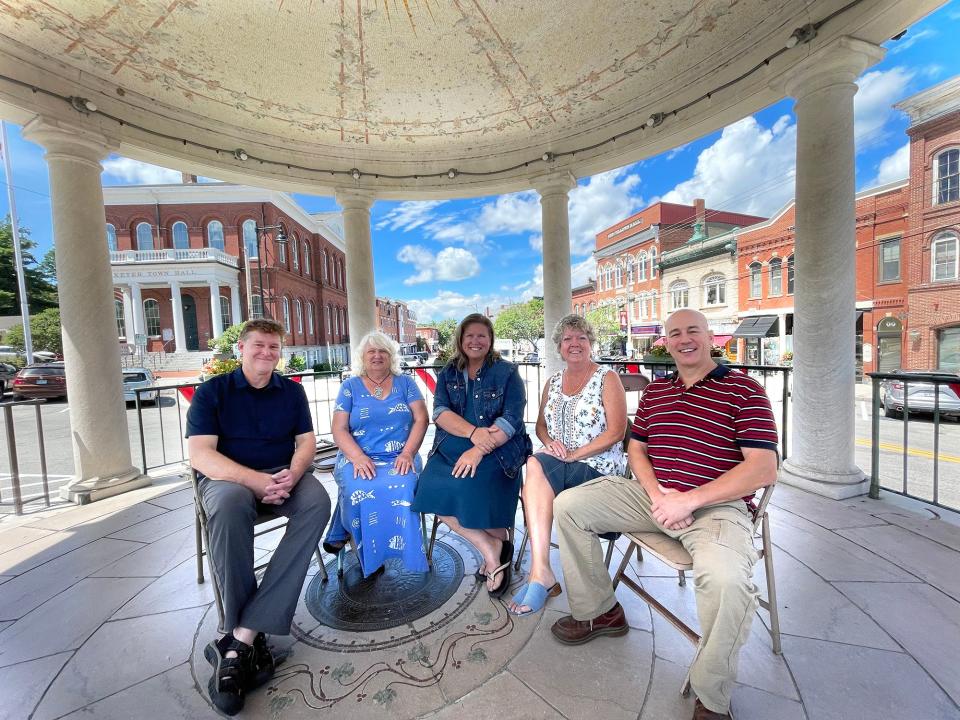
When he was a teenager, he recalled strolling through Water Street. Exeter Jewelers was an optical shop, and the Sears catalog store still existed — sometime around the '70s, he said.
“You had a men’s store where we’d get a suit and pants and things like that … you had the yarn store and the curtain shop … it was things that people needed on a regular basis where they could walk up and down the street and get everything rather than going to a strip mall, which weren’t around,” he recalled.
Barbara Rimkunas, co-executive director at the Exeter Historical Society, recalled her trips to Woolworth’s — or as her mother would call it, “The Stuff Shop.” They would go there to purchase items from clothing to Halloween candies. For notebooks, papers and stationeries, she’d visit “Batchelder’s” — this was back in 1996, a couple of years prior to Woolworth’s closure.
Nightlife in Exeter? Here's the lowdown on why downtown restaurants, bars close by 9 p.m.
The downtown, however, has shifted over the years due to the growth of malls and later with online shopping with the likes of Amazon.
Here are the four recent turning points that transformed Exeter’s downtown into what it is today:
Boutique-style retailers mark a new era for downtown shopping
When Dan Chartrand opened Water Street Bookstore in 1991, he said downtown still had a lot of those “old, family-run businesses.”
It was back when Woolworth’s was still open and there were lunch counters inside, he recalled.
“Exeter definitely had kind of a '50s and '60s feel still when I opened in the '90s,” said Chartrand, who is a member of the town's Select Board. “A lot of those businesses would go away within the next five to 10 years, and they’d be replaced by folks like myself, who were looking to find a niche market that maybe wasn’t in Boston.”
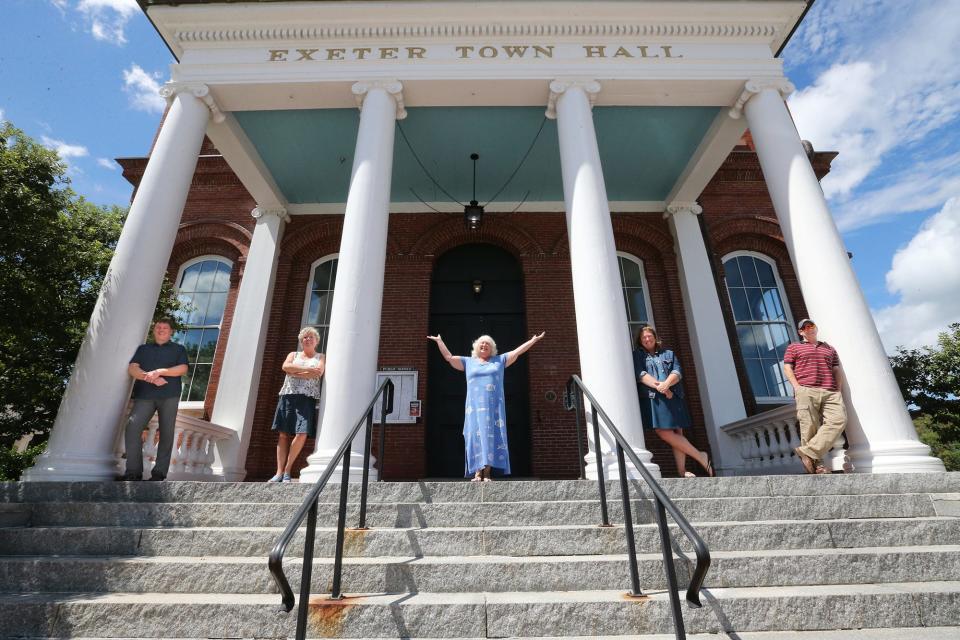
That, said Chartrand, was one of the first turning points for Exeter.
Soon boutique-style retailers — or “specialty stores” as Rimkunas called them — began popping up in the late '90s and early 2000s with the likes of Trends Gift Gallery, Cymbidium Floral, Top Drawer, and the recent addition of Water Street Marketplace.
“That is the trend from the last 30 to 40 years,” he said, referring to downtown businesses. “(Which is) shifting from traditional market-type businesses … to more of a boutique-recreational shopping destination.”
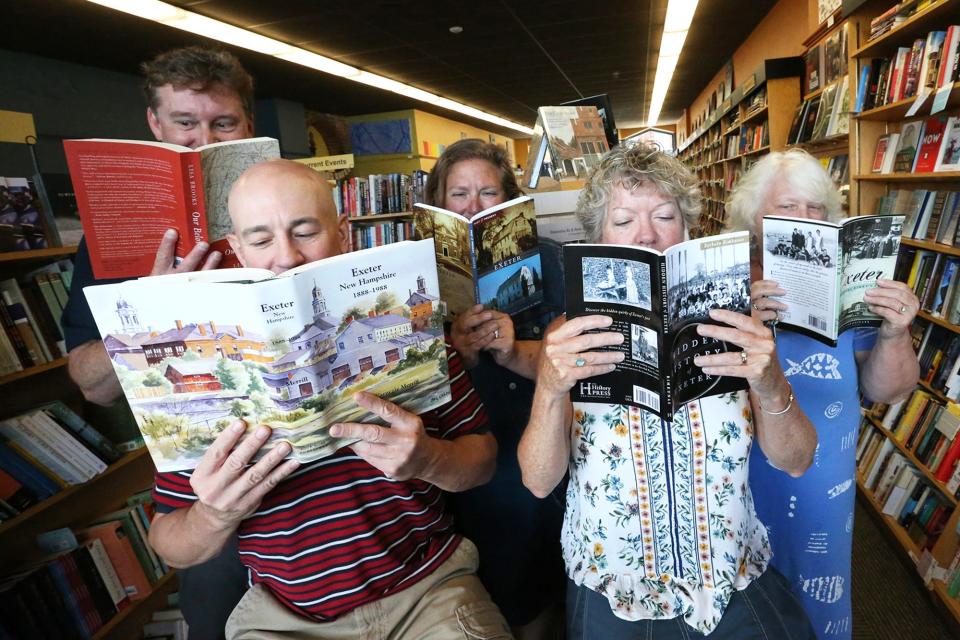
Freedman said the shift has made Exeter “a little more touristy.”
“The problem that I see with it personally is people think boutiques are going to be more expensive,” he said. “I think that’s part of the reason why local people don’t shop as much downtown because they think everybody’s a lot more expensive than other places (or online), which is not necessarily the case.”
Exeter’s new treasure trove: Water Street Marketplace opens with antiques and art
Winham’s appointment helped bring new life to downtown
Chartrand said the second turning point was when Exeter hired Darren Winham, its first economic development director, in 2014.
Winham said he had two major goals for the town: making Exeter “a more vibrant downtown with a younger demographic” and “taking advantage of the opportunities on Epping Road.”

Almost a decade later — although efforts to achieve both goals are still ongoing — the progress is easily noticeable.
For downtown, Winham said part of his strategy was “targeting” businesses that would be appealing to broader residents and visitors. One of them was when Sea Dog Brewing took over the former Loaf and Ladle in 2018.
Other businesses that were vetted by Winham include Otto Pizza, known for its elevated take on traditional flatbreads; Il Cornicello, which offers an authentic Italian dinner; and the recently added Big Bean, which took over the Tavern at River’s Edge.
“(Different) businesses cater to a different era,” he said. “When you have Sea Dog come in … people were encouraging the (town zoning board) to allow parking (a variance) because they so desperately want to see Sea Dog come in. I think it was known at that time that that would be the tipping point.”
'A great alternative to Portsmouth’: How Exeter became a new hotspot for fine dining
Blue Moon Evolution pushed Exeter’s culinary scene ‘dramatically’
When Rachel Forrest — a former restaurant owner and food writer — first moved to Exeter from California in 2001, her perception of the restaurant scene downtown was as a hub for gathering.
“Twenty years ago, it was all about gathering, being a ‘regular’ at your ‘third place’ whether it was Sal and Anthony’s, Rogan’s Village Bakeshop, or Gerry’s Trackside for breakfast,” she said. “(Then there was) pizza joints, Chinese and Thai food, ‘go to’ soup and sandwich spots where we could all meet for lunch, The Tavern or a bit outside the area, Townlyne Grille for drinks and a steak.”

It was simple and casual food back then. She said the culinary scene wasn’t “innovative” or “daring.”
Exeter did not become a food mecca overnight. Before chef-driven eateries such as Lee Frank’s Otis, Tony Callendrello’s Vino e Vivo, Tim O’Brien’s Il Cornicello, and Jaime Lopez and Stanley Orantes’ Ambrose, Forrest said it was Kathy Gallant’s Blue Moon that pushed the culinary scene in town.
“The restaurant scene changed dramatically after Blue Moon Market became Blue Moon Evolution in 2010,” said Forrest. “The market was always progressive, but Kathy Gallant and family were really the first to come in and offer more progressive, ‘fine’ dining.”

Blue Moon was the town’s first farm-to-table restaurant serving upscaled organic dishes sourced locally. The restaurant closed in 2021 after 25 years of operation.
Since then, many restaurateurs — chef-driven, casual joints and breweries — saw Exeter as more than just a “mill town,” but an opportunity.
Now, Exeter is home to the likes of Street Restaurant and Sawbelly Brewing.
What drew out-of-towners to Exeter back then, Gallant said, was its convenience.
“Blue Moon drew from a large demographic, a wide radius just because we were unique,” she said. “People knew that if they got to Exeter, they could find a place to park.”
Restaurateur Jay McSharry, who owns Street Restaurant, described Exeter as “an alternative to Portsmouth. (Exeter) has less of a tourism component and more of just a robust city that could stand on its own."
Donut Love in Exeter: Owner says new shop, menu could serve as model for future stores
Iconic properties get new lease on life in Exeter downtown
Exeter’s downtown is going through more changes as iconic former properties are being transformed into a new life.
The historic Ioka Theater has been dormant since it closed in 2008. It is now being redeveloped into a mix-use retail and residential property.
New owners David Cowie and Jay Caswell plan to transform the 1915 building with a speakeasy restaurant bar in the theater’s basement, retail space on the first floor and condominiums on the upper floors.
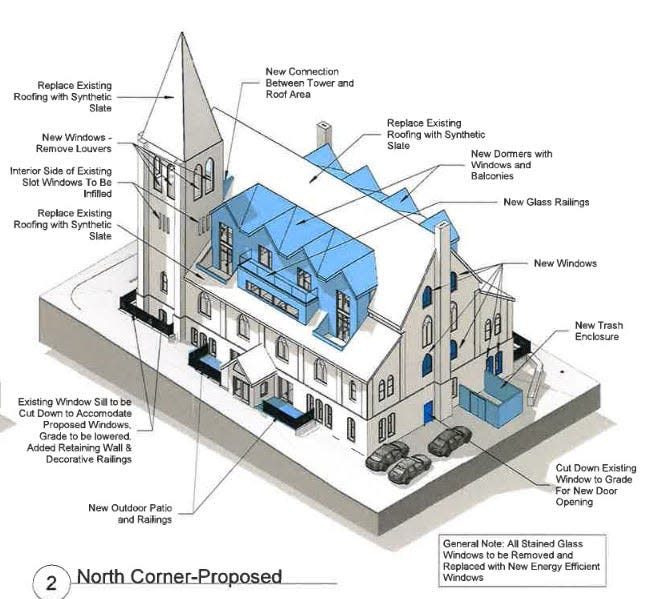
The former First Baptist Church of Exeter, known to many in town as the “Red Brick Church," is also getting a new lease on life. The 1876 building at 43 Front St. was sold in 2021 to Exonian Properties LLC, which plans to convert the former place of worship into an 11-unit condo building.
Also in the works is a makeover of the Smith Building (also known as the George & Phillips building) at 173 Water St., which plans to add five to six apartment units above the retail space.
“More housing equals more vibrancy, which is exactly what we want,” said Winham, Exeter’s economic development director.
Exeter is booming: Here is how town transformed Epping Road with new housing, businesses
What is the future of downtown Exeter?
Winham hopes downtown vibrancy continues to grow and that the town will be able to “serve all demographics.”
Just this summer, there has been a surge in live entertainment from TEAM’s Tune & Fork Tuesdays to live music on Thursdays at Otto Pizza.
Over the years, Winham said the downtown’s liveliness during the day has attracted a lot of businesses and restaurants. As far as future growth, Winham said there isn’t much space available on Water and Front streets.
Winham said that is why the town is pushing growth in the Epping Road corridor off Route 101. In 2015, voters established a 587-acre Tax Increment Financing (TIF) District within the Epping Road corridor to spur growth by developing water and sewer in the area.
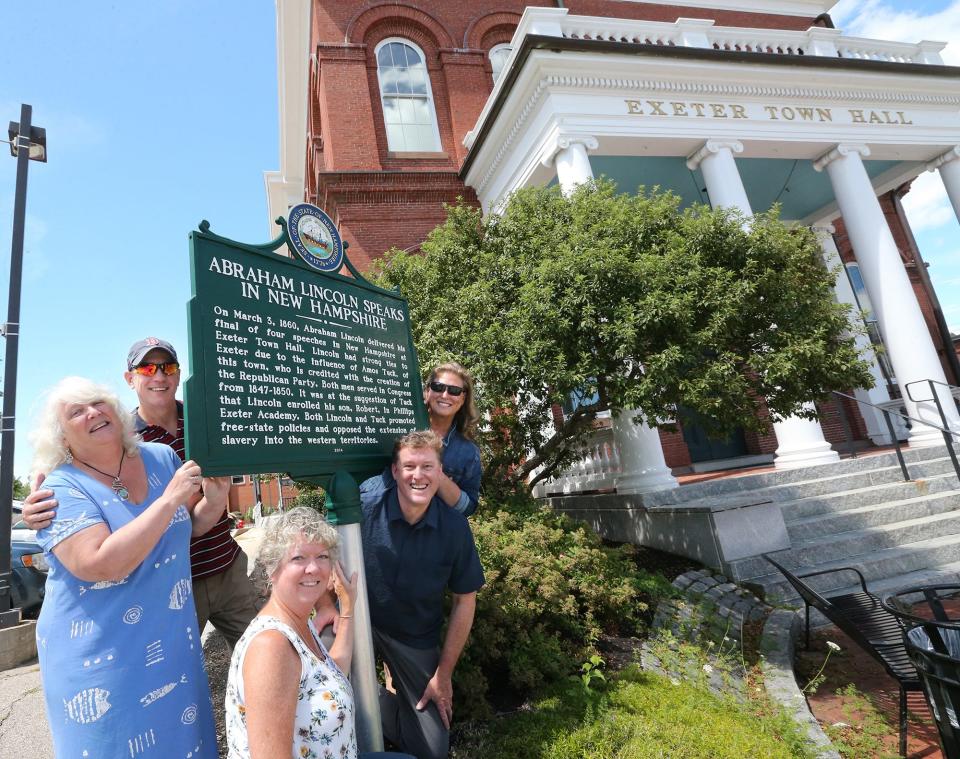
Winham said it was a “smart move” by the town. By 2021, the corridor produced almost $54 million in future taxable property, bringing opportunities for jobs, dining, and shopping for residents.
“It was the right thing to do at the right time,” he said, referring to TIF. “It’s a mixed-used (space). It’s not necessarily zoned mixed-used, but it’s become that and that to me is the highest and best use for economic developments from the economic zone standpoint.”
Since then, Winham said he’s been “steering” business opportunities along the corridor.
The area is now home to eateries such as Sawbelly Brewing and the soon-to-come Gateway at Exeter, an $80 million mixed-used project set to bring 224 housing units and commercial businesses to town.
“One doesn’t have to be (in) downtown to be vibrant,” said Winham. “I think you’re gonna see higher traffic counts (on Epping Road). … I’m not going to call it ‘Downtown 2.0’ but I would say (Epping Road) is certainly going to be more vibrant.”
This article originally appeared on Portsmouth Herald: Exeter downtown transformation: How it became a dining and boutique hotspot

